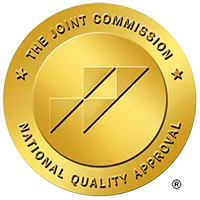If you have already gone through substance abuse treatment or are about to enter treatment, you may be familiar or have heard of 12 Step Addiction Treatment programs. These recovery programs are the most commonly used by addicts and alcoholics who are seeking to end their substance abuse addictions and find recovery. 12 Step programs for drug and alcohol abuse are highly effective because they can be tailored to any addiction as well as any age group. For those who may not be familiar with the 12 Step from which these treatment programs are based, it is important to understand the history behind the 12 Steps.
What are the 12 Steps and why are they used in treatment?
If you are not acquainted with the philosophy and meaning behind the 12 Steps and 12 step based addiction programs, they are a blueprint for struggling addicts to find sobriety as well as keep triggers and temptations at bay. The group Alcoholics Anonymous (AA) created the first 12 Step program in 1935 and the group is still strong and vibrant. When the group was created, the 12 Steps reflected the strong moral and spiritual mores of the country. The steps reinforced the belief that addiction could be cured by recognizing God’s absolute power to heal.
The original 12 Steps, as created by Alcoholics Anonymous, are quoted below:
- We admitted we were powerless over alcohol — that our lives had become unmanageable.
- Came to believe that a power greater than ourselves could restore us to sanity.
- Made a decision to turn our will and our lives over to the care of God as we understood Him.
- Made a searching and fearless moral inventory of ourselves.
- Admitted to God, to ourselves and to another human being the exact nature of our wrongs.
- Were entirely ready to have God remove all these defects of character.
- Humbly asked Him to remove our shortcomings.
- Made a list of all persons we had harmed and became willing to make amends to them all.
- Made direct amends to such people wherever possible, except when to do so would injure them or others.
- Continued to take personal inventory, and when we were wrong, promptly admitted it.
- Sought through prayer and meditation to improve our conscious contact with God as we understood Him, praying only for knowledge of His will for us and the power to carry that out.
- Having had a spiritual awakening as the result of these steps, we tried to carry this message to alcoholics and to practice these principles in all our affairs.
12 Steps addiction treatment programs are ground in faith which is an essential cornerstone of the program itself. For those addicts whose faith is important to them, it is important to find a 12 step addiction recovery program that will allow them to fully embrace their beliefs. For other newly recovering addicts, however, they may not the faith-centeredness of the 12 Steps. Fortunately, there are 12 Step addiction treatment facilities that integrates the 12 Step approach in a secular, more open manner.
How Will 12 Step Addiction Programs Help the Addict?
When you are ready to enter a 12 Step-based Addiction Treatment Program, you will learn many things regarding the disease of addiction and will gain knowledge on how to combat the factors that may lead to relapse. In a 12 Step based program you will learn:
- How to deal with cravings
- How to deal with family and friends who don’t support your decision to be in recovery
- How to become productive and healthy in your day-to-day life
- Uncover the physical, mental and spiritual reasons behind your substance dependence and abuse
When you enter a 12 Step recovery program, you will also receive ongoing support from staff and peers and well as feel encouragement and empowerment from those who have substantial clean time. Ultimately, what is learned in a 12 Step addiction program will help you gain confidence in your own recovery that will move beyond treatment and into your normal daily life.
What Other Programs and Tools Are Available to Me in a 12 Step Treatment Program?
Besides the emphasis on the 12 Steps, the 12 Step treatment model also includes various counseling and therapy options that can be tailored to fit your unique needs. The following are examples of counseling and treatment options that 12 Step Addiction Programs provide:
- Cognitive-Behavioral Therapy (CBT)—a form of psychotherapy and helps addict recognize, avoid and cope with those situations where they are most likely to turn to drugs and alcohol.
- Multidimensional Family Therapy—a therapeutic technique which addresses the influences that shaped substance abuse in families and works to improve the functioning of the family as a whole. This form of therapy which originally devised to help adolescents with drug and alcohol addiction as well as their families.
- Motivational Interviewing—a therapy technique which focuses on the eagerness of addicted individuals to change their behavior and enter treatment.
- Contingency Management—also known as motivational incentives, this technique utilizes positive reinforcement to encourage addicts to abstain from drugs and alcohol.
If you are about to enter a 12 Step drug treatment program, it is advisable that you pursue treatment in an inpatient, residential setting. Depending on the drugs that were abused, the length of time these drugs were abused and the withdrawal symptoms that are experienced, medical monitoring and detoxification will help minimize any potentially life-threatening withdrawal symptoms and get you to a point where you are both mentally and physically stable to enter treatment. During this initial phase of treatment, you will also be evaluated for any co-occurring mental and physical disorders that may lie at the root of your substance abuse issues.
Are You Ready to Take The First Step Towards Recovery?
12 Step addiction treatment programs are immensely effective is helping addicts find long-lasting sobriety, serenity and recovery. If recovery is what you desire, it is important to take the first step and find a 12 Step substance abuse program that best fits your needs.
Original Article from SoberNation
Red Rock Recovery Center is a Colorado state licensed substance abuse extended care treatment program designed to help you or your loved one recover from the struggles associated with alcoholism and drug addiction. Located in Denver, Colorado we offer a safe haven for those afflicted by the ravages of untreated addiction. Our program is based on a compassionate 12-step model that applies behavioral as well as life skill therapies, which will enable our clients to heal and recover.




